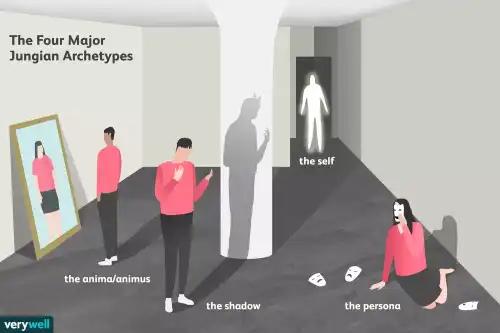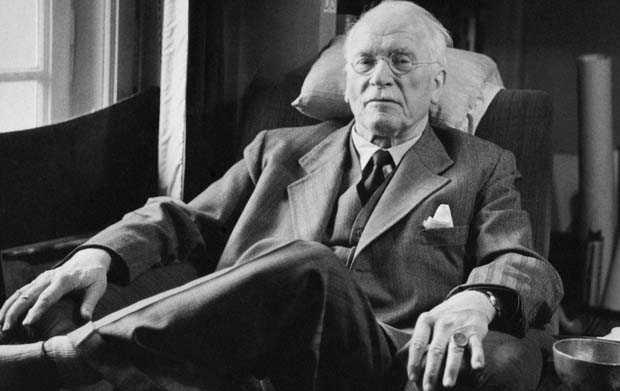The 4 Major Jungian Archetypes
Curated from: verywellmind.com
Ideas, facts & insights covering these topics:
7 ideas
·5.31K reads
31
Explore the World's Best Ideas
Join today and uncover 100+ curated journeys from 50+ topics. Unlock access to our mobile app with extensive features.
Archetypes In Jungian Psychology
Introduced by Swiss psychiatrist Carl Jung, archetypes represent universal patterns and visuals that form the collective unconsciousness.
He identified four main archetypes: The Persona, The Shadow, The Animus, and The Self. These archetypes are not inferred directly, but by looking at religion, dreams, literature and art. The archetypes suggested by Carl Jung are universal, hereditary and play a significant role in our personality.
163
1.1K reads
Individual And Collective Unconscious
Individual or personal unconscious is part of the three components of the human psyche, apart from the ego and the collective unconscious.
The ego represents the consciousness and the personal unconscious contains suppressed and repressed memories.
131
827 reads
The Mind Is Not Blank At Birth
Carl Jung rejected the theory of ‘tabula rasa’ which asserts that the human mind is completely blank at birth, ready to be programmed with life experiences and education. The human mind retains its fundamental biological aspects, the primordial images that provide a basic foundation for the individual.
Apart from the four main archetypes, Carl Jung also describes many other such identities like the father, the mother, the hero, the trickster or the child.
138
704 reads
Carl Jung’s Archetype: The Persona
The persona is a kind of behavioural mask. It is the way we present ourselves in social groups and situations. Right from our childhood, we are taught to behave in a certain way to fit the expectations and norms of society. It suppresses all our primitive urges, impulses and feelings that are not acceptable in society.
People who start to believe in their own persona tend to move away from their true selves.
163
706 reads
Carl Jung’s Archetypes: The Shadow
The shadow is part of the unconscious mind, made up of our repressed ideas, desires, weaknesses, shortcomings and instincts. In our attempt to portray a certain persona, we create this shadow, our cache of envy, greed, prejudice, hate and violence.
It is a darker side of our psyche that appears in dreams as a snake, a demon, or some other dark and wild creature.
159
686 reads
Carl Jung’s Archetypes: The Anima/Animus
The Anima (female) or the Animus (male) are the sex and gender identities/roles that behave like Yin-Yang. The male and female energies are a balance influencing one another at all times. The Animus represents the male aspect in females, while the Anima is the female aspect in males. Society enforces strict gender stereotypes, which constrains normal psychological development.
The combined energy is called ‘syzygy’ or the divine couple, representing completion, unification and oneness.
150
648 reads
Carl Jung’s Archetypes: The Self
- The Self is a circle, or ‘zero’, which represents the unified unconsciousness and consciousness of an individual.
- Individuation is a process in which all aspects of our personality are integrated and in harmony.
- The ego is the center of consciousness, but the self is at the center of our personality. An ego is false most of the time, but a self is always authentic and real.
- Our personality is not just our consciousness, but also our ego and our unconsciousness.
- If the circumference of a circle is our self, the ego is just the dot at the center.
151
638 reads
IDEAS CURATED BY
Asiya R's ideas are part of this journey:
Learn more about personaldevelopment with this collection
How to manage digital distractions
The impact of technology on mental health
The importance of setting boundaries
Related collections
Similar ideas
13 ideas
The Archetypes of the Anima and Animus
appliedjung.com
5 ideas
The Magician Archetype According to Carl Jung
exploringyourmind.com
Read & Learn
20x Faster
without
deepstash
with
deepstash
with
deepstash
Personalized microlearning
—
100+ Learning Journeys
—
Access to 200,000+ ideas
—
Access to the mobile app
—
Unlimited idea saving
—
—
Unlimited history
—
—
Unlimited listening to ideas
—
—
Downloading & offline access
—
—
Supercharge your mind with one idea per day
Enter your email and spend 1 minute every day to learn something new.
I agree to receive email updates

